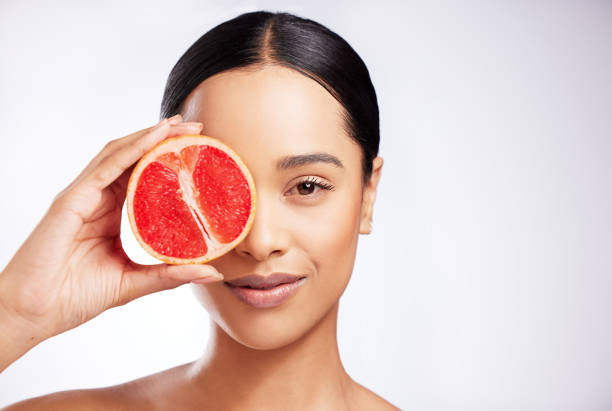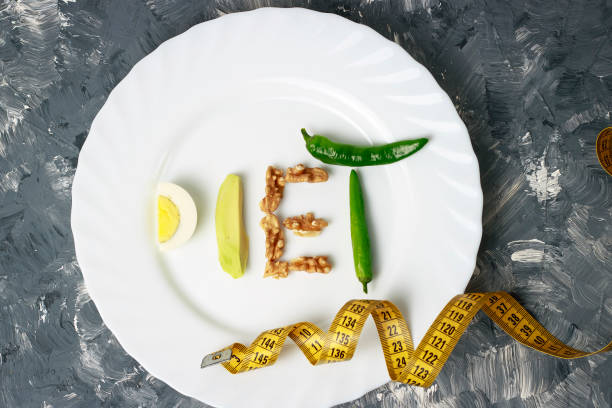A healthy, glowing complexion is something we all aspire to, but achieving it can sometimes feel like a daunting task. The good news is that a glowing skin diet can help you nourish your skin from the inside out, giving you the radiant, healthy complexion you've always wanted. In this post, we'll take a look at some of the best foods to eat for glowing skin and discuss how they can benefit your skin health.

The Connection Between Diet and Skin Health
There is a strong connection between diet and skin health. What you eat can have a significant impact on the appearance and health of your skin. The foods you consume provide your body with the essential nutrients it needs to maintain healthy skin cells and repair damaged tissues. Here are some examples of how diet can affect skin health:
-
Nutrient deficiencies: If your diet lacks essential nutrients like vitamins A, C, E, and K, as well as minerals like zinc and iron, your skin may not receive the nutrients it needs to maintain optimal health. This can lead to a range of skin issues like dryness, flakiness, and even skin conditions like eczema.
-
Inflammation: Some foods can trigger an inflammatory response in the body, which can lead to skin issues like acne, rosacea, and psoriasis. Consuming too many refined carbohydrates, processed foods, and sugary drinks can contribute to inflammation in the body and exacerbate these skin conditions.
-
Antioxidants: Consuming foods that are rich in antioxidants can help to protect the skin from damage caused by free radicals. Free radicals are unstable molecules that can damage skin cells and contribute to the development of wrinkles, fine lines, and other signs of aging.
Overall, a healthy and balanced diet that is rich in nutrient-dense foods like fruits, vegetables, whole grains, and lean proteins can help to support healthy skin. It's also important to stay hydrated by drinking plenty of water and to limit your intake of processed and sugary foods, which can contribute to skin issues.
Foods to Avoid for Healthy Skin
In addition to consuming foods that promote healthy skin, it's also important to avoid certain foods that can be detrimental to skin health. Here are some foods to avoid for healthy skin:
-
Sugar: Consuming excess sugar can lead to the production of advanced glycation end products (AGEs), which can damage collagen and elastin in the skin, leading to premature aging.
-
Processed foods: Processed foods like fast food, chips, and candy are often high in unhealthy fats, salt, and sugar, which can contribute to inflammation and lead to skin issues like acne and rosacea.
-
Dairy: Some people may be sensitive to dairy products, which can contribute to inflammation and lead to skin issues like acne.
-
Fried foods: Fried foods like french fries and fried chicken are often high in unhealthy fats, which can contribute to inflammation and lead to skin issues like acne and psoriasis.
-
Alcohol: Excessive alcohol consumption can dehydrate the skin and lead to premature aging and the appearance of fine lines and wrinkles.
By limiting your intake of these foods and focusing on a healthy, balanced diet rich in nutrient-dense foods, you can help to support healthy skin and maintain a youthful, radiant glow.
Glowing Skin Diet
There is a strong connection between diet and skin health. What you eat can have a significant impact on the appearance and health of your skin. The foods you consume provide your body with the essential nutrients it needs to maintain healthy skin cells and repair damaged tissues. Here are some examples of how diet can affect skin health:

-
Nutrient deficiencies: If your diet lacks essential nutrients like vitamins A, C, E, and K, as well as minerals like zinc and iron, your skin may not receive the nutrients it needs to maintain optimal health. This can lead to a range of skin issues like dryness, flakiness, and even skin conditions like eczema.
-
Inflammation: Some foods can trigger an inflammatory response in the body, which can lead to skin issues like acne, rosacea, and psoriasis. Consuming too many refined carbohydrates, processed foods, and sugary drinks can contribute to inflammation in the body and exacerbate these skin conditions.
-
Antioxidants: Consuming foods that are rich in antioxidants can help to protect the skin from damage caused by free radicals. Free radicals are unstable molecules that can damage skin cells and contribute to the development of wrinkles, fine lines, and other signs of aging.
Overall, a healthy and balanced diet that is rich in nutrient-dense foods like fruits, vegetables, whole grains, and lean proteins can help to support healthy skin. It's also important to stay hydrated by drinking plenty of water and to limit your intake of processed and sugary foods, which can contribute to skin issues.
There is a strong connection between diet and skin health. What you eat can have a significant impact on the appearance and health of your skin. The foods you consume provide your body with the essential nutrients it needs to maintain healthy skin cells and repair damaged tissues. Here are some examples of how diet can affect skin health:
-
Nutrient deficiencies: If your diet lacks essential nutrients like vitamins A, C, E, and K, as well as minerals like zinc and iron, your skin may not receive the nutrients it needs to maintain optimal health. This can lead to a range of skin issues like dryness, flakiness, and even skin conditions like eczema.
-
Inflammation: Some foods can trigger an inflammatory response in the body, which can lead to skin issues like acne, rosacea, and psoriasis. Consuming too many refined carbohydrates, processed foods, and sugary drinks can contribute to inflammation in the body and exacerbate these skin conditions.
-
Antioxidants: Consuming foods that are rich in antioxidants can help to protect the skin from damage caused by free radicals. Free radicals are unstable molecules that can damage skin cells and contribute to the development of wrinkles, fine lines, and other signs of aging.
Overall, a healthy and balanced diet that is rich in nutrient-dense foods like fruits, vegetables, whole grains, and lean proteins can help to support healthy skin. It's also important to stay hydrated by drinking plenty of water and to limit your intake of processed and sugary foods, which can contribute to skin issues.












